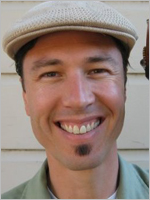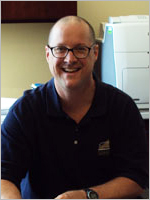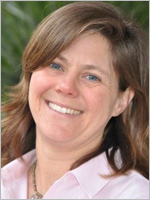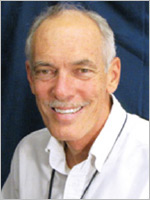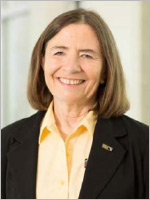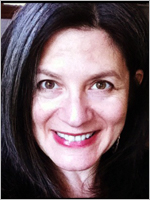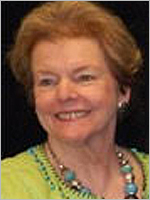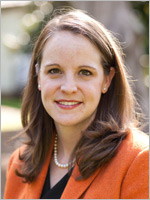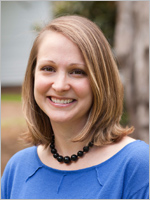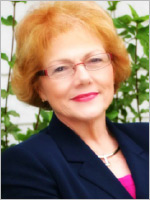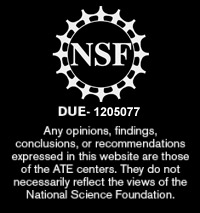RECORDED WEBINARS 2015
November 19, 2015 — Bridge Learning Communities
This webinar will focus on the expansion of the Bridge to Bioscience Learning Community, a series of contextualized math, language, and hands-on skills courses that prepare students for success in biotechnology and related programs. Begun at City College of San Francisco, the national adoption and adaptation of the basic courses and the evolution of internships and networking events have resulted increased retention, success, diversity and degree completion. Lessons learned may be applied across technical disciplines.
Presenters:
Elaine Johnson, PI and Executive Director of Bio-Link, a National Science Foundation Advanced Technological Education National Center for Biotechnology and Life Sciences based at City College of San Francisco
Rob Yung, Instructor, Bridge to Bioscience Program
City College of San Francisco
Dr. Jeff Rapp, Biotechnology Program Chair
Athens Technical College
Dr. Katherine Krolikowski, Professor, Biological Sciences
Contra Costa College
VIEW SLIDES VIEW RECORDINGVIEW TRANSCRIPT
October 15, 2015 — Effective Web Telecommunications-Design for Effectiveness (Part Two)
Effective grant project management today involves implementing web telecommunication tools to both manage complex projects and convey the results of the project to a wide audience. Increased bandwidth, VoIP, cost effective software and mobile devices have created opportunities to not simply replace face to face meetings but now add new ways of interacting with your team and your audience.
Part two of this two part series focuses on the production aspects of web meetings. You will learn how meeting preparation is critical and how to effectively use today’s diverse technologies to engage your participants with voice, visual, video and interactive tools. You will experience by example the seven key steps to use in preparing effective video conference calls, web seminars and remote team meetings.
Presenters:
Mike Lesiecki, Director, Maricopa Advanced Technological Education Center (MATEC)
Marilyn Barger, PI & Executive Director, Florida Advanced Technological Education Center (FLATE)
VIEW SLIDES VIEW RECORDINGVIEW TRANSCRIPT
September 24, 2015 — Effective Web Telecommunications-Design for Effectiveness (Part One)
Effective grant project management today involves implementing web telecommunication tools to both manage complex projects and convey the results of the project to a wide audience. Increased bandwidth, VoIP, cost effective software and mobile devices have created opportunities to not simply replace face to face meetings but now add new ways of interacting with your team and your audience.
In part one of this two part webinar series, you will select the best meeting style to accommodate the plus and minuses of the web and participate in designing a presentation for a remote audience.
Presenter:
Mike Lesiecki, Director, Maricopa Advanced Technological Education Center (MATEC)
VIEW SLIDES VIEW RECORDINGVIEW TRANSCRIPT
August 20, 2015 — Effective Outreach and Recruitment: Special Populations
The number of students/participants you attract into a program or initiative supported by grant funding is almost always a key indicator of success. Too often, however, identifying, connecting with, and recruiting your target audience is challenging. This is especially true with special populations. During this webinar, specific successful strategies and tools for recruiting females, Hispanics, and veterans will be shared by NSF ATE and DOL TAACCCT grantees.
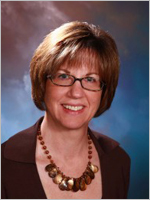
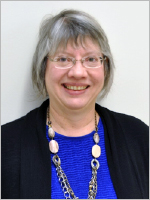
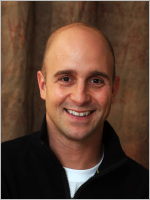
Presenters:
Gemma Frock – Aiken Technical College, SC
Pamela Silvers – Asheville-Buncombe Community Technical College, NC
Anthony Manupelli – Pellet Productions, MA
VIEW SLIDES VIEW RECORDINGVIEW TRANSCRIPT
July 31, 2015 — TAACCCT Technical Convening
DOL TAACCCT grantees, NSF grantees, and others who are interested are invited to register for a free technical assistance convening on Friday, July 31, 2015, from 8:30 am to 12:30 at the Portland Marriott Hotel that will primarily focus on DOL TAACCCT technical assistance issues. This convening is sponsored by the Centers Collaborative for Technical Assistance, a TAACCCT Learning Network affiliated effort led by 5 National Science Foundation Centers (National Convergence Technology, South Carolina ATE National Resource Center, Florida ATE Center, Bio-Link Next Generation National ATE Center, and MATEC Networks Resource Center.)
The session will address topics including but not limited to:
- Various aspects of working integrally with business and industry such as aligning curriculum with business demand, engaging business, and successfully placing graduates once they have finished their programs
- Tracking participants from outreach and recruitment to participation in college programs to employment to employment data reporting
- Universal design and open source requirements for curriculum
- Sustainability
- Locating already-existing resources
- Other topics as needed
Topics will be presented by experienced TAACCCT and NSF grantees
June 18, 2015 — Successful Approaches for Ensuring Effective Business Engagement in Programs
What are some secrets of success for strong industry engagement in your college’s workforce programs and projects? What do they need to become active participants and partners – even if they do not need to hire your students today? With decades of experience behind them, the NSF ATE Centers have many strategies for starting and growing strong, sustainable and highly engaged industry partnerships.
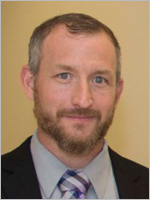
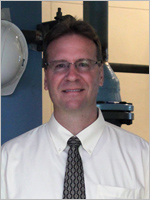
Presenters:
Kevin Cooper holds 25 patents and 40 publications in advanced technology fields, including green manufacturing, semiconductors, biosensors, chemical detection techniques, nanotechnology, optics, applied physics, and energy generation. Currently, he is Director of the Regional Center for Nuclear Education & Training (RCNET) and Dean of Applied Research at Indian River State College. Prior to joining IRSC, Kevin worked in the semiconductor and energy generation industries. Kevin obtained a doctorate in chemical engineering from Arizona State University and degrees in chemical engineering and applied physics from the Georgia Institute of Technology.
James Auld serves as Director of External Training Initiatives for Florida Power & Light’s Nuclear Division. His primary duties include external workforce development initiatives. James works closely with colleges and universities to ensure a robust pipeline of well-educated and highly skilled nuclear professionals. Collaborating colleges work with James to develop curriculum that complies with the requirements of the Institute of Nuclear Power Operations (INPO), which serves as the nuclear industry’s training accreditation body. James collaborates with colleges and universities on grant initiatives and is committed to promoting workforce development programs and ensuring their sustainability.
VIEW SLIDES VIEW RECORDINGVIEW TRANSCRIPT
May 12, 2015 – Planning for Sustainability
Funding agencies have the expectation that vital elements of funded projects will be sustained after awards are expended. How do grant funded college programs plan for sustainability? How will the project’s goals, principles, and efforts necessary to achieve desired outcomes be continued? The NSF ATE program has focused on sustainability strategies for over 20 years. Learn from a panel of experts how to think and plan strategically and creatively to ensure your project’s most meaningful work is sustained.
Presenters:
Rachel Bower, Directs Internet Scout Research Group, a grant funded research and development center at the University of Wisconsin-Madison
Elaine Craft, Director of the National Science Foundation-funded South Carolina Advanced Technological (SC ATE) Center of Excellence
Elaine Johnson, PI and Executive Director of Bio-Link, a National Science Foundation Advanced Technological Education National Center for Biotechnology and Life Sciences based at City College of San Francisco
VIEW SLIDES VIEW RECORDINGVIEW TRANSCRIPT
April 16, 2015 – Locating Free Curriculum and Professional Development Resources
This webinar will begin to explore the vast curriculum and professional development resources developed and refined by the NSF ATE Centers over their 20+ year history, where you can find them and how best to use them. Many resources are open source.
Presenters:
Anna Kolliopoulos, Assistant Director and Co-PI, South Carolina Advanced Technological Education Center of Excellence (SC ATE)
Kris Frady, Director of Operations for CA2VES and the Clemson University Center for Workforce Development
Dr. Ginny Hall, Director of Digital Learning, Clemson University Center for Workforce Development
VIEW SLIDES VIEW RECORDINGVIEW TRANSCRIPT
March 26, 2015 – Effective Approaches for Aligning Curriculum with Business Demand
College workforce programs need to be tightly aligned to industry. One way to do that is to regularly review the program content, objectives, and student learning outcomes with industry stakeholders. There are a number of good approaches and strategies to accomplish this task efficiently and effectively. Strategies might depend on local, regional, or state-level requirements or guidelines. This webinar will outline a number of the systematic approaches that the NSF ATE Centers have used across the country and in a number of disciplines to conduct this important task.
Presenters:
Marilyn Barger, PI & Executive Director, Florida Advanced Technological Education Center (FLATE)
Ann Beheler, PI & Executive Director National, Convergence Technology Center (CTC)
Mike Lesiecki, Director, Maricopa Advanced Technological Education Center (MATEC)


